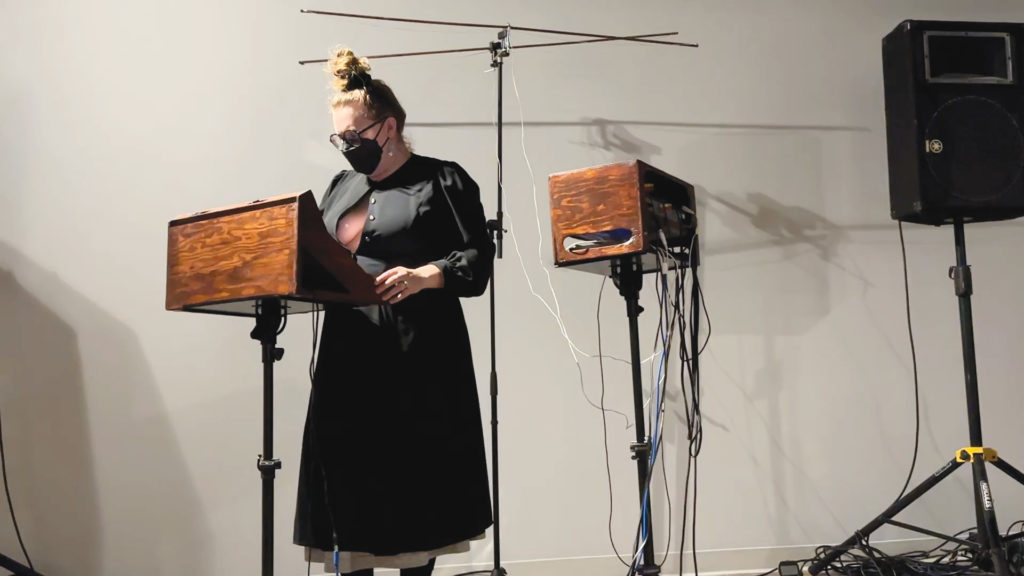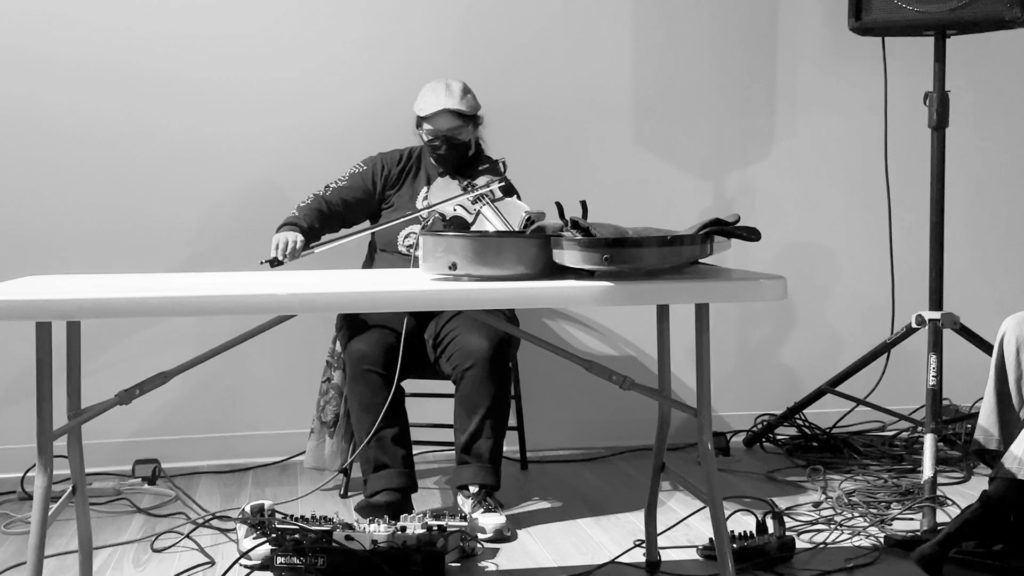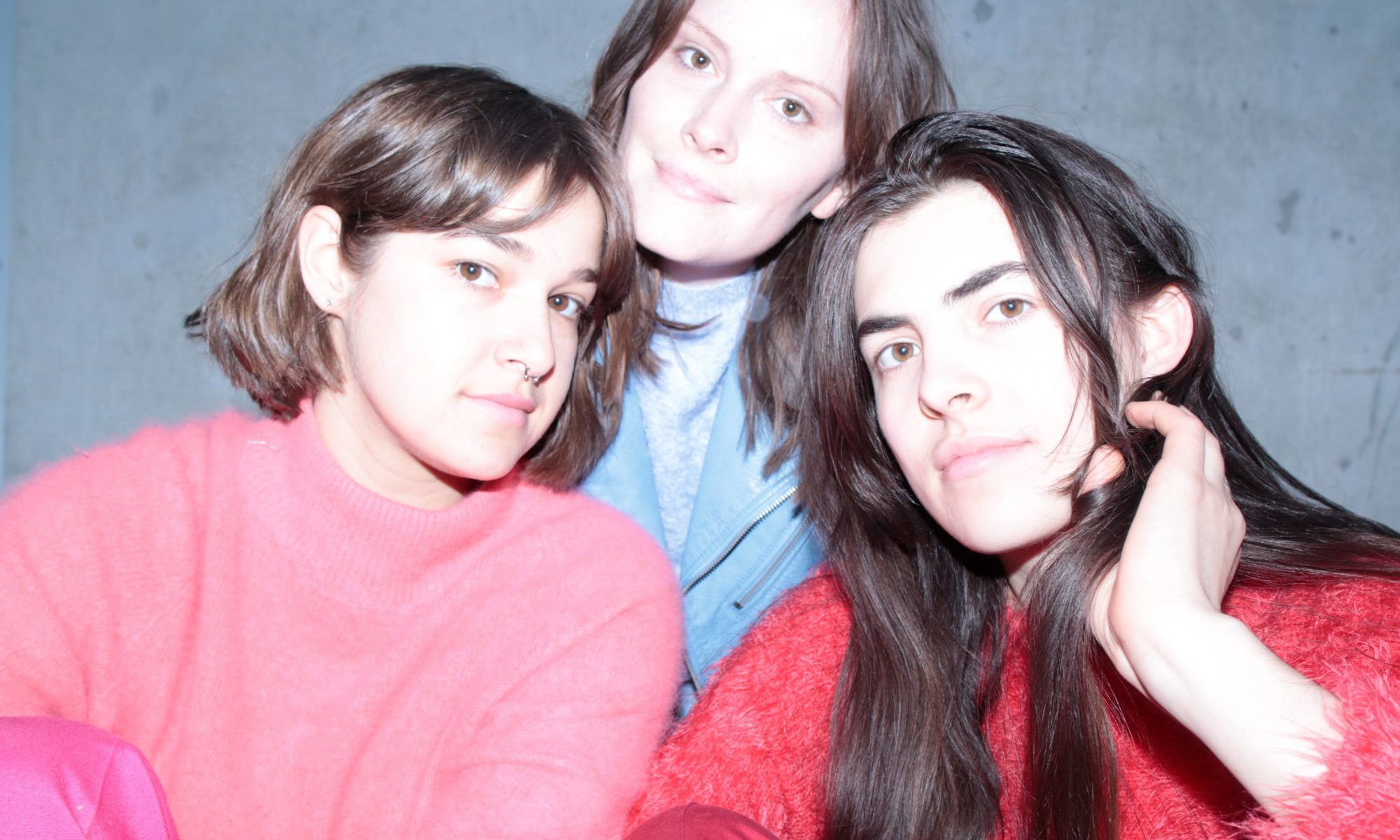An evening of trans + queer sound art and poetry (October 1 @ aceartinc.)

by maggie astrid clark
photos by derek brueckner
As evidenced by September’s so-called “1 Million March 4 Children” and by recent legislation in Saskatchewan and New Brunswick, we are living through a time of escalating fascist rhetoric against trans people and related political efforts to strip the most vulnerable of us of access to safe medical and social transitions. Amidst a backdrop of great uncertainty for the future of our communities, it was truly refreshing to attend an evening of Two Spirit, trans, and queer sound art and poetry at aceartinc. (206 Princess St.) on October 1.
Event curator Misha Stone opened the show by invoking the long history of queer experimental music and how little attention has been paid to this history in mainstream curations of 2SLGBTQ+ art. The evening, she hoped, would be a necessary corrective to such omissions and an attempt to broaden public awareness of musical horizons. Art, while in itself incapable of fixing the problems we face, is nonetheless a crucial instrument through which audiences can engage with radical ideas for a liberatory future. In explaining the show’s title, Stone said that–although she is drawn neither to utopian nor nihilistic frames of understanding queer existence–“Another Place” was simply “the best I can do right now.” As Misha is a close friend of mine, her endearing tendency to undercut her perceptive analysis with a lightly self-effacing remark is very familiar to me and, as such, elicited a chuckle.
Upon the completion of this provocative introduction, the room’s attention turned to Dasha Plett, the evening’s first performer. An intriguing setup was laid out on the floor of the gallery — two radios in a wooden case attached to raised antennae and plugged into a turntable. She launched into a plunderphonics-influenced piece that began with a brief, disorienting mashup of classic rock-style song snippets and radio drops. The composition then settled into a slower collage of warm synthesizer chords and fragments of orchestral pop ballads, punctuated by electronic clicking and hissing. The most arresting section occurred towards the end when Plett introduced isolated vocals from David Bowie’s “Moonage Daydream,” heavily chopped and distorted, accompanied by a low digital rumble that gave way to EDM drums before transitioning back into the same low rumble as the Bowie vocals faded out. This set the tone superbly for the performances to follow.
Up next was Mutable Body, the solo project of Alison Hain. Their set began with “256 Steps,” a song that I overheard them describe before the show as being performed at the “lowest possible threshold of entrainable rhythm:” 30 beats per minute. It was an eerie piece of dark ambient drone. Shrill keys contrasted strikingly with thunderous bell-like sounds. The presence of “chance elements” that Hain had described was borne out in my subsequent comparison of the live performance to the song’s recorded version available on Bandcamp. Though I recognized its broad outline, I was surprised by how little the latter resembled what I recalled of the former — which, in retrospect, further enhanced my appreciation of the piece’s stochasticity. Mutable Body’s second composition (as yet untitled) was a more up-tempo, dream-like composition of flanged keys, slightly dissonant yet pleasantly melodic, buoyed by a propulsive electronic drum sample. The crowd was entranced throughout the performance and was left abuzz for minutes after its conclusion. “Holy shit,” I heard several people mutter in unison.
Dividing the evening neatly in half was a recitation of three poems by m. patchwork monoceros. As they were not present in the venue, their audio was piped into the speakers over a Zoom call and reverberated across the walls. The effect was imposing and more than a little ominous. Sitting still with my eyes closed, I found myself entranced by the warmth of their voice and fluidity of their cadence, so much so that I often forgot to pay attention to the actual words. From what I could tell, their poems dealt with themes of sex, pain, desire, struggle, and the intersection of these experiences–classic terrain of queer artistic expression. (Personally, I can’t get enough of that sort of thing!) They closed with a chipper sign-off of “thanks for being gay!” to much delight from the audience.

Anishinaabe composer and university professor Melody McKiver was the evening’s penultimate artist. Their selected piece was a tense, captivating composition performed on the electric viola. A blinking effects pedal on the floor — which they would occasionally tap with their right foot–prolonged the decay of the notes, filling the air with a haunting, almost apocalyptic feeling. To make reductive comparisons, I would say that certain sections of the piece reminded me of latter-day Godspeed You! Black Emperor drones. I make this analogy with admiration as a huge fan of the band, which renders McKiver’s performance all the more astonishing given that they were just one performer to GY!BE’s ten. As the last few notes continued to ring through the venue for a minute or two, McKiver stood up and slyly announced that the piece was played with a progression of “A-C-A-B,” prompting a burst of laughter and applause. They commented afterward that it was the first time an audience had recognized the statement as a joke.
Multidisciplinary artist Hassaan Ashraf gave a rousing performance to end the show, her song straddling several genres from synth-pop to metal with a touch of musique concrète. A string-like drone persisted throughout as Ashraf alternated between a cascading, xylophone-like synth line and mournful vocalizations. Partway through the piece, a mid-tempo drum loop kicked in, and Ashraf rose from their chair to pick up the bass guitar that had been lying on the ground. The resulting instrumentation was harsh and discordant, producing a sublime interplay with the trudging percussion. As the drums picked up speed, so too did the pace of her strumming before they returned to the synthesizer to close the piece with a single high-pitched note — a final cry into the night. She ended her performance with an impassioned plea for trans solidarity in dark times and for cis people to join the struggle as well.
All told, Another Place offered a varied, ambitious, and profoundly unique collection of performances. It was a balm to the proverbial soul to witness a full bill of Two Spirit, trans, and queer performers and to spend an evening in the company of my fellow travellers. This was especially appreciated in light of the intensifying reactionary mobilizations that threaten our collective safety. I was moved to tears on multiple occasions and frequently rapt with attention. More than that, the event challenged us all to remember life’s many peculiar beauties and to hold onto them as we fight for a brighter future.

